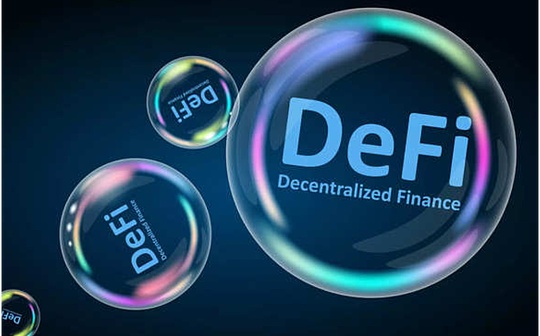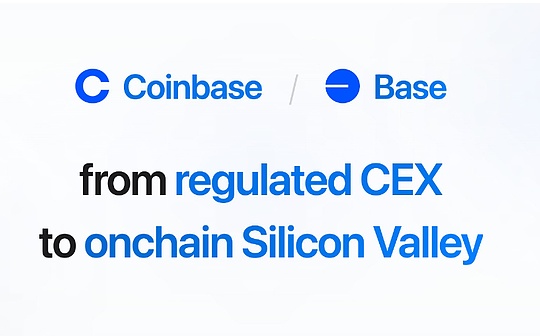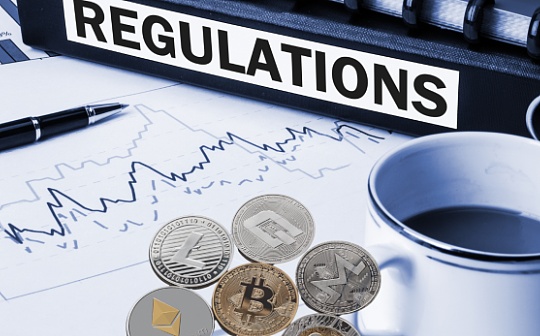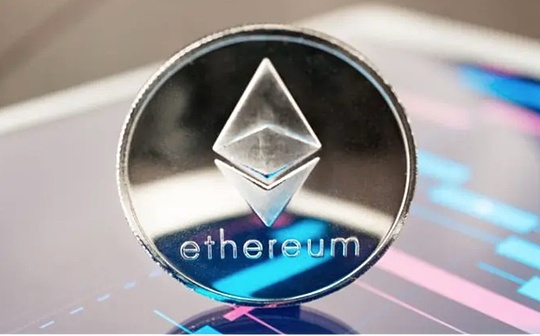
Author: Chen Mo Source: X,@CMDEFI
Core viewpoint: Under what circumstances of understanding DEFI will be identified as a “agent”, exploring the underlying logic and living space in decentralization and regulatory attitude, and find perfect exports.
-
Expansion agent definition: Regulations believe that the DEFI transaction is very similar to the securities transaction process. The DEFI agent needs to submit information reports to IRS, help customers accurately declare taxes, and ensure compliance (KYC, anti -money laundering, etc.).
-
Determine DEFI agent: provide services to promote transactions and have customer information acquisition capabilities.
-
Impact on DEFI: Choose to accept the identification of the agent or decentralize the project. The higher the degree of decentralization, the lower the possibility of being identified as a broker.
-
DEFI’s future perfect export: decentralized front -end, non -upgraded contracts, chain autonomy, tokens can function to build your own network.
Research report
1/4 · Background and reason
The regulations are initiated by the US Ministry of Finance and the State Taxation Bureau. Due to decentralization and anonymity, digital asset transactions often lack the transparency of information in traditional financial systems, leading to huge challenges for tax supervision.The regulations list the similarities between the securities industry and the DEFI industry in the operation process:
Transaction instruction -& gt; transaction matching and execution -& gt; transaction settlement
In the securities industry, the broker sends the customer’s transaction instruction to the trading center (such as the New York Stock Exchange or Nasdaq), which is responsible for matching the orders of both buyers and sellers.In the DEFI industry, the regulations believe that there is also such a “agent” role, and the agent needs to submit information reports to IRS, help customers accurately declare taxes, ensure compliance (KYC, anti -money laundering, etc.).
Therefore, under what conditions do we mainly discuss, which roles of Defi will be identified as “agent”.Regardless of whether the regulations will be approved and in what form of implementation, our main analysis goals are the underlying logic and living space in the decentralization and regulatory attitude.
2/4 · Extension of the definition of “agent”
Traditionally, the definition of “agent” is limited to transaction agents in the securities industry or intermediaries directly holding customer assets.The main content of this regulation is to expand this meaning to apply to the field of digital assets.The new regulations require brokers to submit the application form to the IRS (IRS) to report the transaction information of customers in detail, including income and transaction details. The purpose is to improve tax compliance, which means potential possibility of taxation.
The first -level regulatory tendency that can be interpreted here is that although the “securities” and “commodities” have preliminary definition and distinguished, although when the ETH ETF is passed, the digital assets that meet the conditions are more inclined to define it as a commodity.It is classified as securities, but the “agent” expansion proposed by this regulation is to establish a information report mechanism similar to securities transactions, so it can still return to how to define the DEFI agreement and assets.
The regulations have expanded the definition of the “agent” and clearly include the following types of participants:
-
Digital asset agencies: Provide customers with services to complete the individual or entities that complete digital asset transactions, including exchanges, hosting wallet service providers, etc.
-
Defi platform participants: including non -custody platforms that do not hold customer private keys but provide trading services through agreements or smart contracts.
The core here is the word “intermediary”. It is not necessary to talk about individuals or entities that provide customers with services. There are no particular controversy on exchanges and custody wallets. The dispute is how to define the “intermediary role” in DEFI activities.In summary, the following two key factors:
-
Provide services to promote transactions
-
With customer information acquisition ability
-
Front -end service provider: Provide users with friendly interaction interface so that they can easily interact or trade.
-
Protocol operator: Provide core protocols or smart contracts for execution transactions (such as Uniswap, CURVE and other AMMs).
-
Verification or settler: Responsible for recording transactions on distributed ledger (blockchain).
-
The self -relief of smart contracts: The core transaction function is implemented through the smart contract deployed on the blockchain. The contract cannot be tampered with. Anyone can interact with it without permission.
-
No centralized management: If the project party exits (for example, stop maintaining the front -end interface), the smart contract can still run without relying on any centralized entity.
-
Independence of front -end service: Even if the official front -end (such as Uniswap’s official website) is offline, third -party developers can build their own front -end interaction with smart contracts.
-
Unable to control customer information: Since the interaction on the chain is completely trusted, the project party usually cannot obtain the identity information or transaction data of the customer.
-
The project party itself leaves a bunch of rotten stalls to soft Rug in the name of decentralized
-
The overall cognition of the market is insufficient, and it needs centralized guidance and promotion
-
There is no problem in the project itself, but it is not mature enough. The community does not have the ability to autonomy and promote the development of the project
-
Ask users to provide KYC
-
Under the burden of compliance, turn on the front -end charging or service charges
-
Decentralization front end
-
Smart contracts solidify and cannot be upgraded
-
Chain autonomy
-
The front end and charging of the offer, the transaction depends on the third -party front -end, or the educational user interacts directly with the smart contract
-
Send your own chain to gradually “Ethereum” as a functional use and network maintenance to avoid securities identification.
Remember these two judgment factors, let’s further dismantle the characters in a DEFI project:
The regulations pay special attention to front -end service providers and protocol operators, because their services directly “promote” the completion of the transaction.For the verificationr or settlement, if a participant only provides the verification service of distributed ledger (such as blockchain nodes or miners) and does not directly participate or promotes the transaction, it will not be regarded as a broker.So just discuss 1 and 2.
The entire analysis process will run through Uniswap as an example, because it is the only case that occupies some of each situation.
1 Basically, it is also no controversial. The front -end service provider must belong to the “intermediary” role of the agent, especially the current front -end charging state like Uniswap will strengthen the tendency of being identified as a broker.
2 Agreement operators are controversial, because strictly speaking, unable to upgrade smart contracts are not controlled by any individual or entity.Defined as a broker?
Back to the two key definition factors: provide services to promote transactions+have customer information acquisition capabilities
If taking the current Uniswap as an example, the front -end service is provided and maintained by the project party. It provides a 100 % service service to promote transactions, and it will charge for this service.Add KYC or trading clauses in the front end)
Then we assume that if the Uniswap team abandon all services and completely withdraw from the project, then theoretically users can still complete the transaction purpose by directly accessing the AMM smart contract deployed by Uniswap.In the chain, at this time, AMM has become a decentralized tool. In a decentralized environment, the project party cannot obtain user information, which does not meet the second definition factor.Users are trading, but it no longer has the ability to “actively” promote transactions and acquisition user information, but the regulations may not be able to find applicable agent objects.
Therefore, the higher the degree of decentralization of the project, the lower the possibility of being identified as a broker.
To sum up, several core features of decentralized projects:
3/4 · The impact on DEFI
At the beginning of the birth of DEFI, the end of most projects was still decentralized, and the project was finally handed over to community autonomy, which was completely operated on the chain.However, with the development of the times, everyone found that it is not as simple as I want to realize this ideal. After leaving the project party, most projects gradually disappear in the market vision. There are mainly the following reasons:
(1) DEFI that needs centralized participation
Therefore, in this cycle, many CEDEFI projects have begun to rise. Since the pure DEFI project is currently unable to complete the goal of “decentralized finance”, it is better to directly introduce relatively professional and compliance centralized entities and strategies.In this case, these centralized entities are very likely to be recognized as “agent”.If the regulations are approved and implemented, it means that these projects may
But at the same time, it means that the “agent” can carry out activities reasonably and legally. The cost is under the burden of compliance, and it is necessary to increase its own income ability, such as charging for customers.
(2) DEFI, which has the ability to decentralize
It is difficult to judge the “agent” as the above points, so from this perspective, even if the regulations are implemented, the main objects are also dependent on centralized projects, although such projects are in the current marketOccupy most, but in the long run, decentralization of Defi is also a promotion, and the demand for centralized entities that enter the industry has become higher and higher.
4/4 · DEFI exit
First of all, the clearness of supervision and compliance is only a matter of time for DEFI. Of course, this clarification may take advantage of Trump’s term. The market expects a more loose supervision.Here we discuss a DEFI project in the face of the optimal solution of regulatory and compliance, and the perfect export is discussed according to the previous bill or draft.
(1) Broker judgment
This aspect is the focus of this discussion. The conclusion is to either make this matter into a formal business, abide by the IRS report requirements and accept the identification of the broker, or gradually decentralize the project.
(2) In terms of the nature of tokens
In the context of ETH spot ETF application, and the content of the previous FIT-21st Century Financial Innovation and Technical Act, there is a basic judgment basis for how the project tokens define securities and products.
At present, the definition of ETH is more inclined to use functional use. The pledge and governance nature of its existence is more to maintain network operations rather than economic returns. In this case, it is more inclined to define goods rather than securities.
From this perspective, for the DEFI protocol, if it is closer to obtaining economic returns or dividends in the direction of governance, its positioning is more likely to be defined as securities.The probability of goods is greater.
We still take the UNISWAP as an example. If we want to avoid the judgment of the “agent”, at the same time, it is to ensure that its tokens are defined as goods rather than securities. Should we get out of this perfect export?
Regardless of whether these regulations will be approved and promoted, if Defi always keeps moving towards the goal of decentralization, it will not be affected. Of course, some projects that still need centralized entities to participate and lead in this process, and currently it is currently the existence of centralized entities, and it is currently the current is currently.Most, they may need to face choice and balance. This is in line with the needs of the development of the times. Decentralization is not completed in one day.






